Tick Life Cycle
Ticks are tiny arachnids, and just like their spider relatives, have 8 legs. Unlike adult spiders, ticks are ectoparasites, which means they stay alive by feeding on the blood of mammals.
Ticks cannot jump or fly; instead, they climb vegetation and wait for a host to come into contact with them, when they attach themselves and begin feeding.
Typically, ticks live in wooded or grassy areas, like forested properties, provincial and national parks, and the woods. Ticks are most active in Spring and Fall but will begin biting as soon as temperatures are consistently above 7 degrees.
Ticks have 4 life stages; Egg, Larvae, Nymph, and Adult. The entire tick life cycle can last up to 3 years.
EGG STAGE
- Ticks feed on 3 hosts during their development
- Mated females lay thousands of eggs on the ground. The eggs hatch into larvae or "seed ticks" which only have 6 legs.
- Female adults die after egg-laying is complete
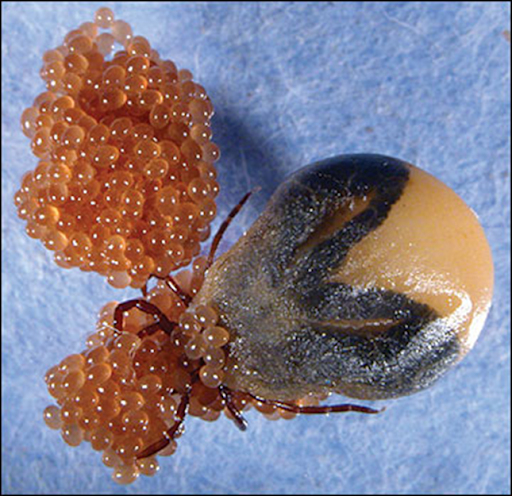
LARVAE STAGE
- Eggs hatch into larvae know as "seed ticks"
- Larval stage ticks only have 6 legs
- These larvae remain close to the emergence site and climb up on grass and low vegetation so they may attach themselves to small animals which pass by (Mouse, squirrel, rabbit, bird)
- After feeding for 2 to 9 days on their hosts, the larvae drop to the ground, digest the blood and then molt to the 8-legged nymphal stage.
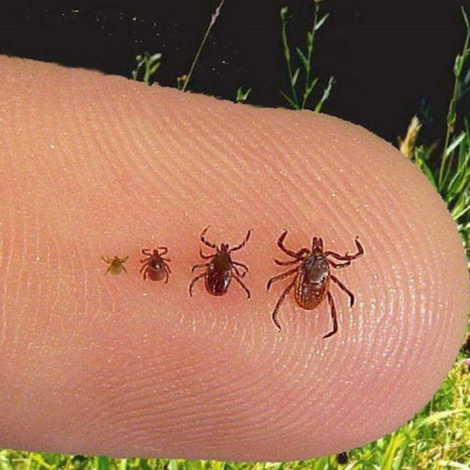
NYMPH STAGE
- Nymphs attach themselves to a second host
- Obtain a blood meal on small mammals
- After feeding on these hosts, the nymphs molt to the 8-legged adult stage
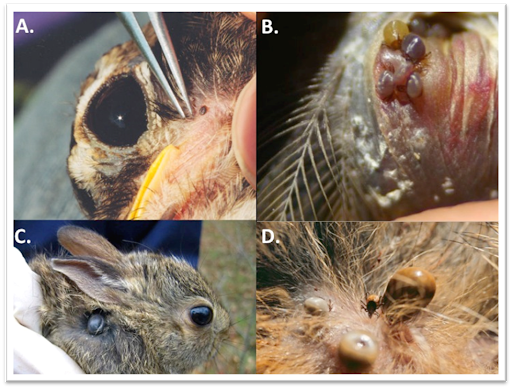
ADULT STAGE
- After an adult female attaches itself to a host, it often takes up to a week to complete its feeding
- Once the female has become engorged, it drops to the ground and mates
- Mating can also take place on the host before or during feeding
- Adult males die after completing fertilization
- The female ticks die after laying their eggs
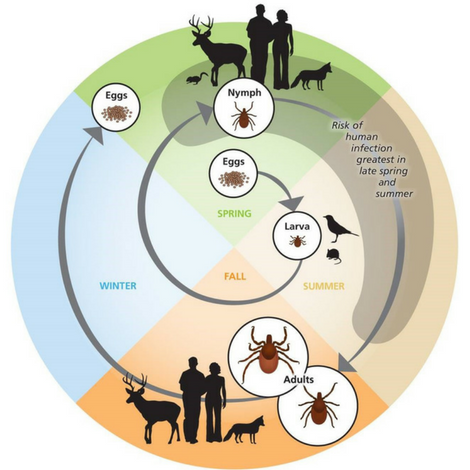
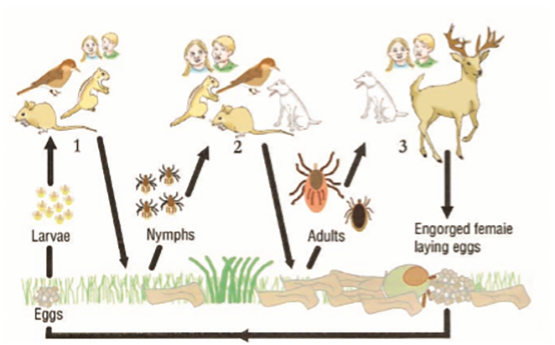
See our Tick control service in Action!
Postal Code or Zip Code Not Found
Please select your city from the list below
- Airdrie
- Aldersyde
- Balzac
- Bearspaw
- Beiseker
- Black Diamond
- Bragg Creek
- Calgary
- Cheadle
- Chestermere
- Cochrane
- Conrich
- Crossfield
- Dalmead
- Dalroy
- Delacour
- Dewinton
- Elbow Valley
- Foothills
- Greater Calgary
- Heritage Pointe
- High River
- Indus
- Irricana
- Janet
- Kathryn
- Keoma
- Langdon
- Lyalta
- Madden
- Millarville
- Mountainview
- Okotoks
- Oothills
- Prarie Royal
- Priddis
- Prince Of Peace
- Redwood Meadows
- Rockyview
- Shepard
- Springbank
- Strathmore
- Symons Valley
- Turner Valley
- Wheatland
- Abbotsford
- Aldergrove
- Brentwood Bay
- Burnaby
- Chemainus
- Chilliwack
- Cobble-Hill
- Comox
- Coquitlam
- Cordova Bay
- Courtenay
- Delta
- Kamloops
- Kelowna
- Ladysmith
- Lake Country
- Langley
- Lantzville
- Maple Ridge
- Mill Bay
- Mission
- Nanaimo
- New Westminster
- North Saanich
- North Vancouver
- Parksville
- Peachland
- Penticton
- Pitt Meadows
- Port Coquitlam
- Port Moody
- Qualicum Beach
- Richmond
- Salmon Arm
- Shawnigan Lake
- Sidney
- South Island
- Summerland
- Surrey
- Vancouver
- Vancouver Area
- Vernon
- Victoria
- West Kelowna-Westside
- West Vancouver
- White Rock
- Ajax
- Alliston
- Almonte
- Ancaster
- Angus
- Aurora
- Ayr
- Bala
- Barrie
- Belleville
- Blackstock
- Bolton
- Bowmanville
- Bracebridge
- Bradford
- Brampton
- Brantford
- Brockville
- Brooklin
- Burlington
- Cambridge
- Capreol
- Carleton Place
- Carp
- Casselman
- Chelmsford
- Chesterville
- Clarence Creek
- Collingwood
- Concord
- Cookstown
- Copper Cliff
- Courtice
- Durham Region East
- Durham Region West
- Elmira
- Embrun
- Erin
- Etobicoke
- Fort Erie
- Gananoque
- Gloucester
- Gormley
- Gravenhurst
- Greater Sudbury
- Grimsby
- Guelph
- Hamilton
- Hanmer
- Holland Landing
- Innisfil
- Kanata
- Kemptville
- Keswick
- King City
- Kingston
- Kitchener
- Lively
- London
- Manotick
- Maple
- Markham
- Metcalfe
- Milton
- Mississauga
- Mount Albert
- Muskoka
- Napanee
- Nepean
- New Hamburg
- Newmarket
- Newtonville
- Niagara
- Niagara Falls
- Niagara-on-the-Lake
- Oakridges
- Oakville
- Orillia
- Orleans
- Orono
- Oshawa
- Ottawa
- Pickering
- Port Carling
- Port Colborne
- Port Perry
- Richmond
- Richmond Hill
- Rockcliffe - Manor Park
- Rockwood
- Rosseau
- Russell
- Sault Ste. Marie
- Scarborough
- Schomberg
- St. Catharines
- St. Thomas
- Stittsville
- Stouffville
- Stratford
- Sudbury
- Thornhill
- Thorold
- Tillsonburg
- Toronto
- Unionville
- Uxbridge
- Val Caron
- Vanier
- Vaughan
- Wasaga Beach
- Waterloo
- Welland
- Whitby
- Whitchurch-Stouffville
- Woodbridge
- Woodbridge/Maple
- Woodstock
- York North
- York South
